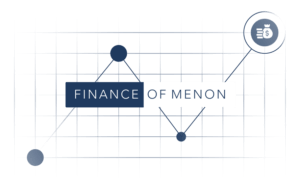The market kicked off the week with a sharp selloff, reinforcing concerns that elevated valuations may still pose risks despite recent pullbacks. The S&P 500 and Nasdaq both posted their worst sessions of 2025, extending a decline that has seen the S&P 500 drop over 9% from its February highs, while the Nasdaq is down 14% from its December record.
While some may view this as a long-overdue correction, the question remains: Has the risk-reward profile actually improved, or is the market still pricing in too much optimism?
Valuations Have Moderated, But Remain Stretched
Despite the market’s drawdown, valuations across major indices remain historically high. The S&P 500’s trailing P/E hovers around 28×, down from prior peaks but still well above long-term averages.
The Magnificent Seven (Apple, Microsoft, Amazon, Alphabet, Meta, Nvidia, and Tesla) have all seen steep declines, with Tesla particularly hard-hit. However, even after these drops, these mega-cap names continue to trade at premium multiples, suggesting that much of the market is still priced for perfection.
The fundamental question for investors is: Have earnings caught up, or do valuations still demand scrutiny?
What’s Driving the Selloff?
The recent weakness in equities isn’t just about stretched valuations—it’s also being fueled by:
1️⃣ Growth Concerns & Economic Transition
- The market has been digesting a constant drumbeat of tariff headlines, with the Trump administration signaling potential economic shifts.
- Over the weekend, Trump told Fox News that the economy may undergo “a period of transition,” while Treasury Secretary Bessent described a “detox period.”
- The Citi Economic Surprise Index has been negative since mid-February, reflecting softer-than-expected economic data and concerns about consumer spending, the main driver of U.S. growth.
2️⃣ Inflation & Interest Rate Uncertainty
- The NY Fed’s February Survey of Consumer Expectations saw 1-year inflation expectations tick up to 3.1%, though long-term forecasts remain steady.
- Investors are eyeing key economic data releases this week, including:
- JOLTS job openings (Tuesday)
- CPI inflation report (Wednesday)
- Producer Price Index & jobless claims (Thursday)
- University of Michigan consumer sentiment & inflation expectations (Friday)
- The bond market will also absorb $119 billion in new Treasury issuance, adding pressure to yields and potentially impacting equity valuations.
3️⃣ Sector Rotation & Defensive Positioning
- Mega-cap tech and growth names led the decline, with steep drops in software, semiconductors, and large financials.
- Defensive sectors outperformed, including utilities, REITs, managed care, and consumer staples, suggesting investors are rotating into rate-sensitive and recession-resistant areas.
How Should Investors Approach Valuation in This Market?
🔍 1. Look Beyond P/E Ratios
A company’s valuation should be viewed in the context of its return on invested capital (ROIC) versus its weighted average cost of capital (WACC). When the spread between ROIC and WACC is thin, multiple compression is inevitable.
🏆 2. Prioritize Quality
Great businesses with strong leadership, durable moats, and pricing power can withstand valuation resets better than those fueled by momentum alone. While even high-quality companies can misallocate capital, a strong historical track record matters.
📉 3. Moderate Expectations
The last decade’s double-digit annual returns may not repeat. Investor expectations set the denominator in valuation—the higher they are, the greater the risk of disappointment.
📊 4. Think Beyond Indexing
Market-cap-weighted indices bring concentration risk. The Magnificent Seven account for ~35% of the S&P 500, meaning passive investors are heavily exposed to these names, whether they like it or not.
Final Thought: No Crystal Ball, But Price Discipline Matters
Valuation isn’t a market-timing tool, and the P/E ratio isn’t a predictive signal—but both serve as essential guides for capital allocation and risk management.
The recent correction has softened some valuations, but for many high-profile stocks, the risk-reward profile hasn’t materially changed. Until earnings growth catches up, investors should approach these premiums with a healthy dose of skepticism.
Disclaimer: Nothing here should be considered investment advice. All investments carry risks, including possible loss of principal and fluctuation in value. Finomenon Investments LLC cannot guarantee future financial results






